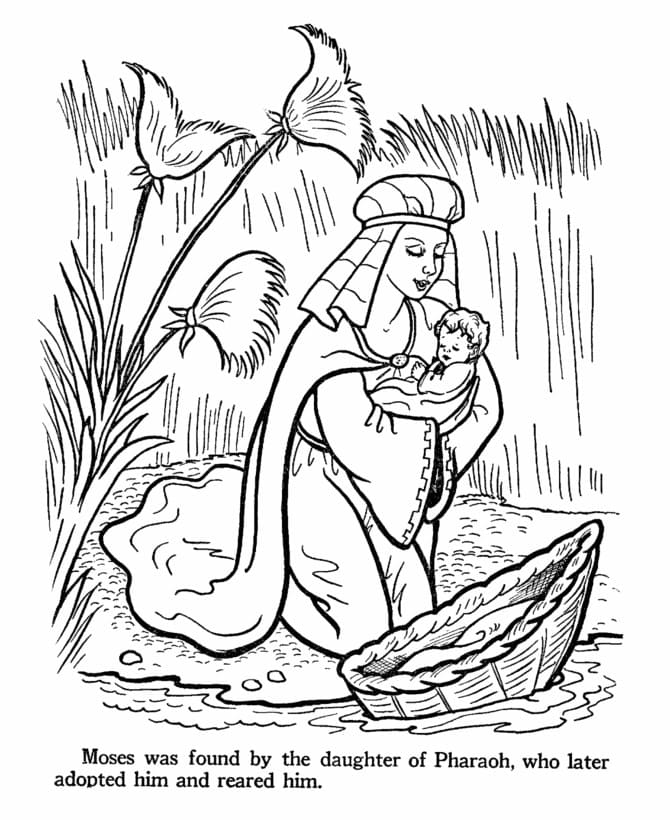The story of Moses is a pivotal narrative within the sacred scriptures of various religious traditions, including Judaism, Christianity, and Islam. However, the Baha’i Faith imparts a unique perspective on this eminent figure, emphasizing themes of divine guidance, the continuity of revelation, and the unifying principles of humanity. Within this exploration, the teachings of the Baha’i Faith provide insights that promise a transformative shift in perspective regarding Moses and his significance.
To commence understanding the Baha’i interpretation of Moses, one must recognize the concept of progressive revelation. Central to Baha’i teachings is the belief that God has sent a succession of Prophets or Manifestations to humanity. Each of these Divine Educators reveals spiritual truths that address the needs of their time, paving the way for human moral and spiritual evolution. Moses stands as an archetype of such a Prophet, embodying the attributes of leadership, lawgiving, and divine communication.
Moses, known for liberating the Israelites from Egyptian bondage, symbolizes more than mere physical salvation; he embodies spiritual emancipation. The Baha’i worldview accentuates that his mission was not solely to lead a people out of slavery but to guide them towards a new covenant with God. This covenant included the giving of the Torah, which encapsulates a multitude of laws and ethical guidelines intended to foster a society rooted in justice, compassion, and devotion to God.
In analyzing the significance of the Mosaic Law, it is imperative to understand its universal application. While adherents of diverse faiths may perceive the laws as contingent upon their historical and cultural contexts, the Baha’i Faith ascribes to them a lasting relevance. This perspective encourages followers to discern the underlying principles of righteousness and equity embedded within the Mosaic commandments rather than adhering rigidly to their literal interpretations.
Moreover, the miracles attributed to Moses, such as the parting of the Red Sea, serve a dual purpose within Baha’i teachings. On one level, they demonstrate divine endorsement of Moses’ mission; on another, they intimate the infinite capacity of God to transcend the natural order. Herein lies a profound lesson: miraculous events invite individuals to reflect on the transcendent nature of reality and to nurture an unwavering faith in divine assistance during times of tribulation and uncertainty.
Moses is further revered for his role as a mediator between God and humanity. His dialogues with God on Mount Sinai exemplify the profound relationship that can exist between the Divine and the human spirit. Within Baha’i thought, this interaction signifies an accessible pathway to understanding God’s will. It inspires believers to engage in their own pursuit of divine communion through prayer, meditation, and active participation in the moral upliftment of society. In this light, the legacy of Moses urges individuals to cultivate a personal relationship with the divine—a vital aspect of Baha’i practice.
In the Baha’i context, the story of Moses transcends the annals of history, conveying imperatives that continue to resonate with contemporary society. His narrative invites an examination of the interrelatedness of all faith traditions. Baha’is hold that the actions and teachings of each Manifestation are interconnected, embarking on a collective mission to enlighten humanity. Therefore, the significance of Moses extends beyond the confines of one tradition; he embodies a shared heritage of spiritual striving that links individuals of diverse backgrounds.
Moreover, the story of Moses stresses the importance of unity among humankind. As Moses led his people to a common destination, Baha’i teachings emphasize the need for global solidarity in facing contemporary challenges. The aspiration for unity is not merely ideological; it is a practical necessity in today’s world, where nations and cultures must collaborate to address pressing issues such as climate change, socioeconomic disparities, and conflicts. The teachings derived from the story of Moses encourage all individuals to engage in collective action for the betterment of society—echoing the call for peace and cooperation that resonates within the Baha’i Faith.
Furthermore, the Baha’i perspective on Moses spotlights the transformative power of education. As a prophet, Moses epitomized the role of a teacher—a role that is also imperative for today’s followers of Baha’u’llah. The pursuit of knowledge and understanding is not merely an intellectual endeavor; rather, it is a means to achieve personal and collective advancement. Encouraging an educated citizenry is crucial to fostering a more just and equitable world. This commitment to education aligns with the Baha’i principle that “the foundation of all human happiness is the education of children.”
In conclusion, the teachings surrounding the story of Moses through a Baha’i lens invoke a multifaceted understanding of spirituality that resonates with the timeless quest for justice, unity, and truth. While engaging with the ancient narrative, believers are called to examine their own lives in the light of Moses’ teachings. The Baha’i Faith posits that every individual has the potential to be a beacon of light in their communities, just as Moses illuminated the path for his people. By embracing the principles of progressive revelation, unity, and education, adherents not only honor the legacy of Moses but also contribute to the ongoing evolution of humanity on its journey towards spiritual fulfillment.
